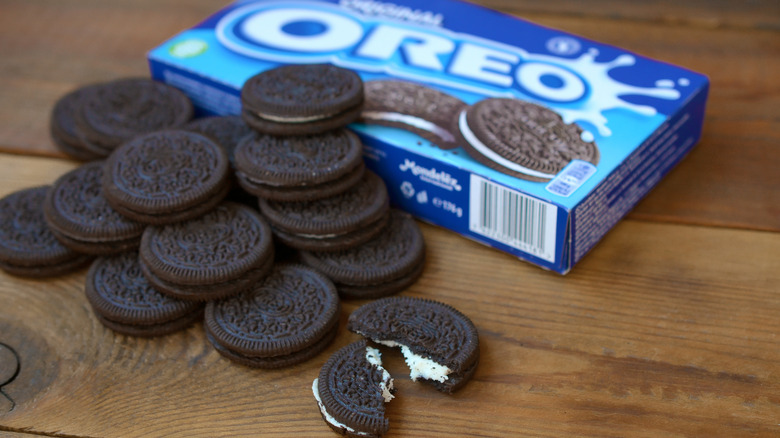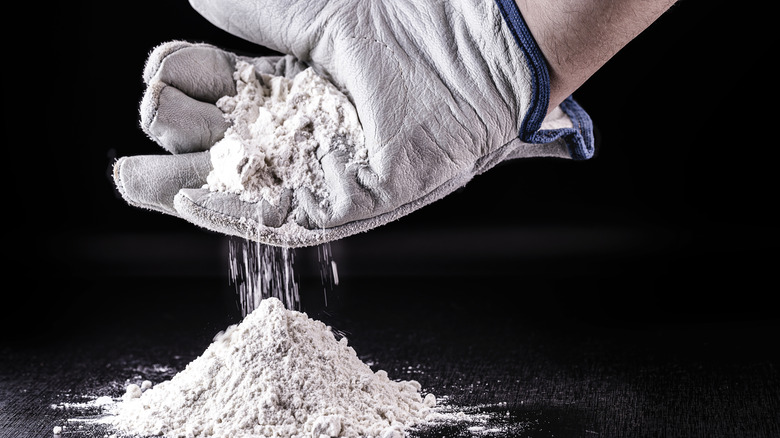You May Want To Avoid Foods With Titanium Dioxide. Here's Why
Have you ever twisted open an Oreo — a vegan product — only to wonder how that yummy filling gets to be such a pretty pearly color without any actual cream? Or what about how Skittles get their signature brilliant rainbow-bright look? It turns out that's all thanks to titanium dioxide, a synthetic powdered food additive that's known for brightening the pigments in cosmetics, toothpaste, and food (via EcoWatch). First authorized by the FDA for use as a colorant in 1966, today it's commonly found in many processed foods, including mozzarella cheese, cake frostings, snack cakes, cookies, coffee creamers, and candy. Unless you follow a strict diet, it's likely you eat many products that contain it every day without even realizing it.
Presently, the FDA deems titanium dioxide totally safe to eat. However, recent research from the European Food Safety Authority says otherwise. Though it was previously believed that the body did a poor job of absorbing enough titanium dioxide to be harmful when eaten, the EFSA released a statement that concluded titanium dioxide particles "can accumulate in the body" over time. Now, numerous activist groups are sounding the alarm insisting the FDA reconsider whether it's actually safe to eat in any capacity. With that in mind, here's why you may want to think twice before buying another box of your favorite synthetically brightened treats.
Studies can't rule out major concerns about titanium dioxide
The EFSA points out that concerns over eating titanium dioxide are due to its potential genotoxicity, aka its ability to damage DNA cells. While no study was conclusive, they couldn't rule out any concern. One 2020 study from Cairo University (via Hindawi), for instance, found that exposure to titanium dioxide particles was linked to changes in the brain tissue of mice. Other research in the Journal of Toxicology and Industrial Health (via SagePub) concluded that repeat exposure to titanium dioxide could potentially lead to inflammation and cell damage.
Of course, most of the current research on titanium dioxide and its effects on the body is based on what happens when it's inhaled, not when it's ingested over long periods of time. As a result, more research is needed to assess the specifics of how much of it is safe to eat before it becomes harmful. The current findings suggest that while the research can't prove that it's 100% bad for you, it also can't prove that it is 100% safe, either. However, it seems some companies are not taking any chances on waiting to see what happens. According to Food Business News, both Dunkin' and Panera reportedly stopped selling food items that contained titanium dioxide several years back. Whether Nabisco, Little Debbie, or other food manufacturers that use the additive will follow suit remains to be seen. But if you're concerned about exposure, it's always never a bad idea to check the ingredients list on your cookies before buying.

